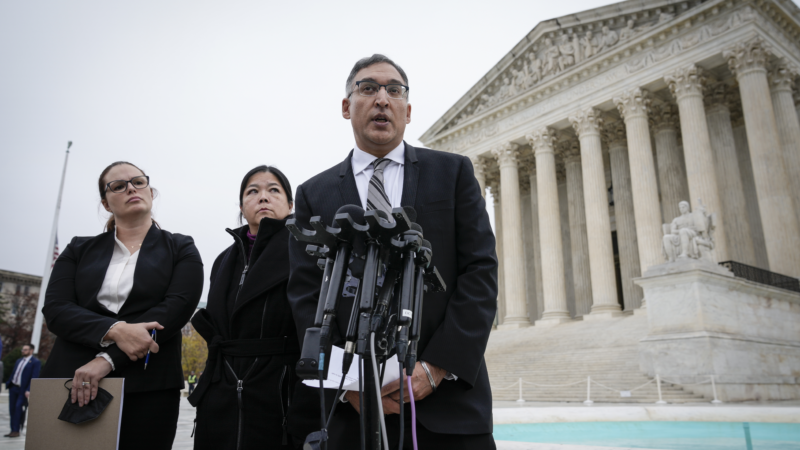Stimulants on Campus
We were just minutes away from our lab final. A few classmates and I were sitting on a couch in UAB’s Campbell Hall, with notes strewn everywhere, cramming. As we drilled each other, one of them suddenly pulled out a prescription bottle. He shook out a small blue pill, broke it in half, and asked, “Do you want any?”
I quickly refused, because I was terrified of getting in trouble. But I couldn’t forget how casually he made the offer. As it turns out, the little blue pill was Adderall. My experience represents a major issue facing college students nationwide. Many are abusing prescription stimulants like Adderall and Ritalin to keep up with the stress of schoolwork.
While statistics are limited, a 2005 study by the University of Michigan and Harvard University showed on some college campuses, up to a quarter of students admit to having used prescription stimulants “nonmedically.” Because these drugs are commonly called cognitive enhancers, many students believe they will help boost grades.
“They do not actually enhance people’s cognition over what it is, but they do optimize it.”
UAB Psychiatrist Rachel Fargason says the drugs essentially wake up the brain. They make it more alert. So while they don’t actually make you smarter, they do combat fatigue. It’s pretty easy to see, then, why they would be attractive to burned-out students staying up late to study. But Fargason points out people who use these drugs without a doctor’s prescription are not just breaking the law, they’re putting themselves in danger.
“If people aren’t being directed on how to take the medication appropriately they may not be taking them at safe doses and there’s a lot of risks there.”
Taking too much can lead to psychiatric issues, heart problems, and even addiction.
Andy Marsch is UAB’s Assistant Vice President for Student Life.
“While overall our drug and alcohol use is lower compared to a lot of campuses, I can’t say that it doesn’t exist and is not a problem. One is too many, and one is a problem.”
Marsch says administrators cannot simply urge students to stop abusing prescription stimulants. He says education is more effective. UAB offers counseling and psychiatric resources to students dealing with prescription drug abuse.
So, if fierce competition drives even all-star students to abuse prescription meds for an academic edge, that brings up an interesting question. Is that cheating, like steroids in sports? Marsch thinks so.
“I guess I would say it’s cheating because you’re using an illegal means to do something to benefit you.”
It’s a more mixed picture though when you talk to students.
A few classmates and I sit around a table at the UAB library – itself a home to sleep-deprived, stressed-out students. Branden Benningfield doesn’t buy the cheating argument.
“You’re still studying the same material. They don’t really necessarily deserve it, but if that’s what they have to do to get an A and they need an A, then it doesn’t affect my grade personally.”
Naveed Farrukh isn’t so sure it’s an even playing field.
“But there are also classes in which there’s a curve, what if someone scores really highly and throws that curve off. I would consider that equivalent to using steroids cause then a substance they’re taking is affecting my grade and how well I do.”
As the discussion wanders, my peers are almost as nonchalant as the guy who offered me Adderall a few months back. One of them says these drugs come up in conversation at least once a week. They generally agree — It’s no big deal.
Branden Benningfield says a lot of students feel they have to take prescriptions stimulants to do well on tests.
“They just feel like, oh, if I don’t take this, I can’t study enough, I’m gonna fail the class, and then they think too far ahead and then get all anxious over one test, and they don’t think they can do it on their own.”
If that’s how some students are now, what will they be like as future doctors, researchers, and workers? Prescription stimulant drug abuse may be a problem for college campuses to deal with. That doesn’t mean the effects will stay there.
~ Aditi Jani, August 15, 2012
A powerful winter storm is roiling travel across the northeastern U.S.
Forecasters called travel conditions "extremely treacherous" and "nearly impossible" in areas hit hardest by the storm, and air and train traffic is at a standstill in many parts of the region.
U.K. arrests ex-ambassador to the U.S. on suspicion of misconduct over Epstein ties
Police have arrested Peter Mandelson, a veteran Labour Party politician who served as British ambassador to the U.S., as part of an investigation into his ties with Jeffrey Epstein.
What NPR reporters will remember most about these Winter Olympics
NPR's reporters on the ground in Italy reflect on a far-flung, jam-packed Winter Olympics.
In the shadow of the Olympics, migrants search for a welcome in Milan
As Italy cracks down on migration, Milan takes a different path — offering shelter and integration to asylum seekers even as the central government tightens borders and funds deterrence abroad.
Trump to raise global tariffs. And, most say the state of the union is weak, poll says
President Trump says he is raising global tariffs to 15%. And ahead of the president's address tomorrow, most Americans say the state of the union is not strong, according to an NPR poll.
Lawyer in SCOTUS case against Trump’s tariffs says his clients want a refund
Neal Katyal, one of the lawyers who defended U.S. businesses in the SCOTUS case against Trump's tariffs, argues that the federal government must refund them with interest.






